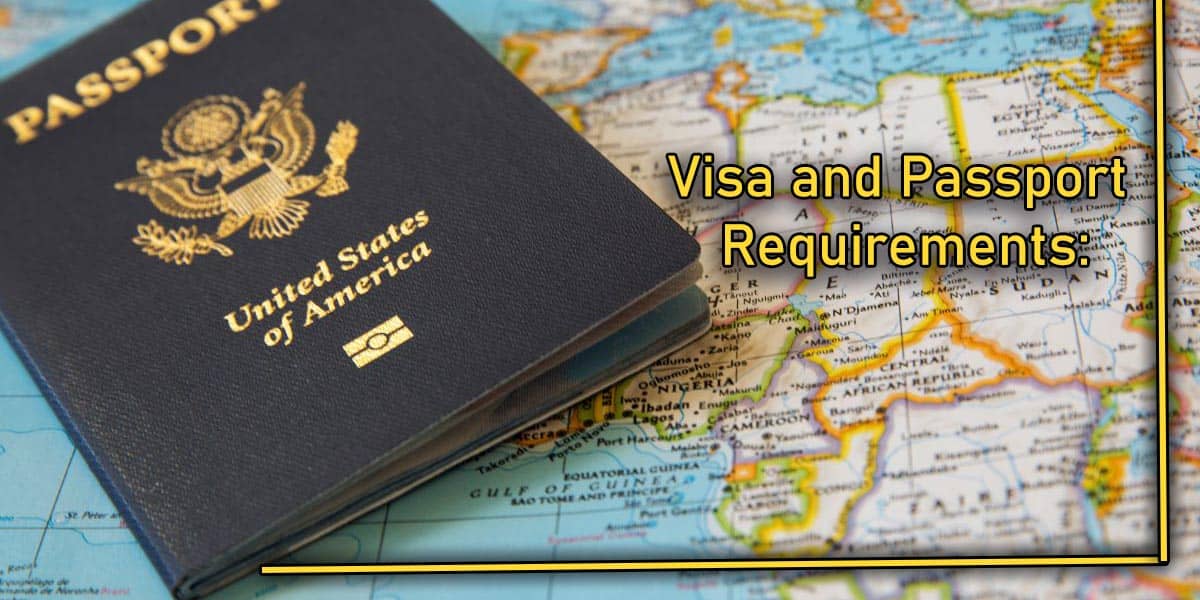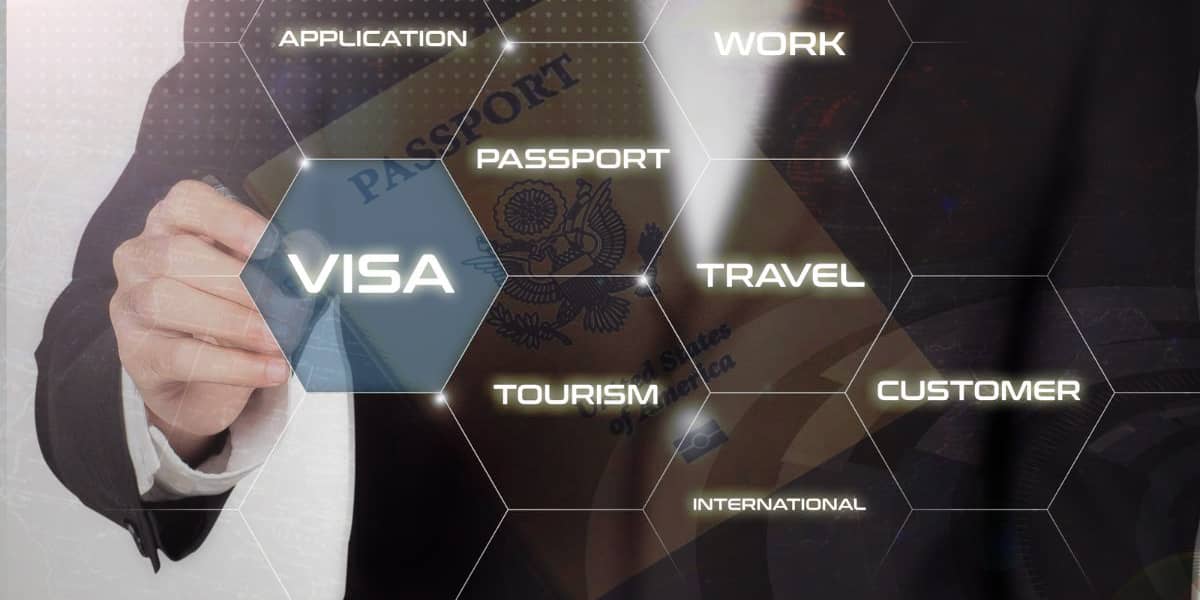
A Guide to Understanding the Visa and passport requirements for different countries
Traveling to other countries is a thrilling and inspiring experience, but it takes proper planning and preparation. One crucial aspect of international travel is understanding your destination country’s visa and passport requirements. In this comprehensive guide, we will explore the intricacies of visa and passport regulations, offering valuable tips to ensure a smooth processing experience. This essay can help you negotiate the administrative jungle and avoid frequent traps, whether you’re a seasoned traveler or taking your first foreign trip.
index
ToggleUnderstanding Visa Requirements
A visa is an official document a foreign government grants that allow you to enter, remain, or transit through a country for a certain purpose and period. Visa requirements differ significantly based on nationality, location, and sense of visit. Some countries have visa-free agreements, allowing certain nationalities to enter without a visa, while others require pre-approved permits obtained from consulates or embassies. Researching and understanding the visa requirements well in advance is essential to avoid any last-minute surprises.
Types of Visas
Countries offer various types of visas tailored to different travel purposes. Tourist visas, business visas, student visas, work visas, and transit visas are common. Each visa type has specific requirements, such as supporting documents, financial proof, and application forms. Determining the correct visa category based on your travel purpose is crucial to a successful application.
Passport Validity and Renewal
Passports are your primary identification document when traveling internationally. It is essential to verify your passport’s validity well before your trip, as many countries need passports to be valid for at least six months beyond the desired departure date. If your passport expires soon or lacks sufficient validity, consider renewing it before your trip to avoid potential complications during visa application or immigration processes.
Researching Visa Application Procedures
Visa application procedures can vary significantly from country to country. Some countries allow online visa applications, while others require in-person visits to consulates or visa centers. Thoroughly research the visa application procedures and gather all the required documents before submitting your application. Starting the process well in advance will give you ample time to gather the necessary paperwork, complete forms accurately, and address additional requirements.
Supporting Documents and Requirements
Visa applications often require supporting documents such as a valid passport, passport-sized photographs, flight itineraries, accommodation bookings, travel insurance, financial statements, invitation letters, and proof of travel purpose (e.g., business meetings, conference registrations, or enrollment in educational institutions). To avoid delays or rejection of your visa application, ensure you have all the relevant papers in the right format and fulfill the specified standards.
Engaging Professional Assistance
Navigating the visa application process can be daunting, especially when dealing with complex requirements or unfamiliar procedures. If you are unsure about the application process or want to minimize the chances of errors, consider seeking professional assistance from visa agencies or immigration consultants. These experts can guide you through the application process, review your documents, and provide invaluable advice tailored to your travel requirements.
Consular Interviews and Medical Examinations
Certain countries may require consular interviews or medical examinations for the visa application. Consular interviews allow immigration officials to verify the authenticity of your application and ask questions regarding your travel plans and intentions. Medical tests may be required to ensure you meet health standards or to screen for infectious diseases. Prepare for these requirements by familiarizing yourself with the interview process and providing you encounter any medical prerequisites.
Visa Processing Time and Expedited Services
Visa processing times can vary significantly, ranging from a few days to weeks or months. Submitting your visa application well in advance is crucial to allow ample processing time. Some countries offer priority or expedited visa services for an additional fee if you have time constraints or require expedited processing. However, it is crucial to remember that expedited services may only be accessible for certain visa categories or nationalities.
Traveling with Multiple Destinations
You must plan appropriately if your trip covers many countries, each with its visa procedures. Research the visa requirements for each destination, ensuring you have the necessary visas before departure. Additionally, check if any transit visas are required for layovers or connecting flights. It is advisable to consult with the respective embassies or consulates and seek guidance on visa options for multi-destination trips.
Stay Informed and Seek Updates
Visa and passport regulations are subject to change, and staying informed about any updates or policy changes is crucial. Regularly check the official websites of consulates, embassies, or reputable travel advisory sources for the most up-to-date information. Subscribing to travel newsletters or alerts can also provide timely updates on visa-related news and changes.
Visa Waiver Programs and Electronic Travel Authorization
Many countries participate in visa waiver programs or offer electronic travel authorization (ETA) systems. These programs allow eligible travelers to visit certain countries without a traditional visa. Instead, travelers can apply online and receive electronic authorization, granting them permission to enter and stay for a limited duration. Research if your nationality qualifies for such programs and familiarizes yourself with the application process to simplify travel arrangements.
Consular Fees and Payment Methods
When applying for a visa, it’s important to consider the applicable consular fees and payment methods. Each country sets its fee structure, which can vary based on visa type, duration, and processing time. Some consulates only accept specific payment methods, such as credit cards or bank transfers, while others may require payment in local currency. Ensure you have the necessary funds and understand the payment requirements to avoid complications during the application process.
Overstaying and Visa Extensions
It’s crucial to adhere to your visa’s authorized duration of stay. Overstaying your visa can result in fines, deportation, or future travel restrictions. If you need to extend your stay for legitimate reasons, research the procedures and requirements for visa extensions. Remember that extensions are typically granted for specific purposes, such as work, study, or medical treatment, and may require supporting documentation.
Consular Services and Assistance Abroad
Consulates and embassies serve as vital resources for travelers in foreign countries. Familiarize yourself with the contact information and location of your country’s consular services in your destination country. Consular offices can assist in case of emergencies, lost passports, or other unforeseen circumstances. Registering with your country’s embassy or consulate upon arrival is advisable, as this facilitates communication and ensures you receive important updates or assistance when needed.
Document Copies and Travel Insurance
Before embarking on your journey, make multiple copies of your passport, visa, and other essential travel documents. Keep one set of copies with you and leave another group with a trusted person at home. In case of loss or theft, having copies can expedite obtaining replacements. Additionally, it’s highly recommended to have travel insurance that covers medical emergencies, trip cancellation, and lost or stolen belongings. Travel insurance provides peace of mind and financial protection during your travels.
Conclusion
Understanding visa and passport regulations is critical for seamless international travel. You may reduce stress, avoid delays, and boost your chances of a successful visa application by being familiar with the visa application procedures, needed paperwork, and special restrictions. Remember to begin the process early, to keep organized, and to seek expert help. You may ensure a flawless travel experience and focus on enjoying your visit with careful planning and attention to detail.
Recent Posts
Contact Us
+1 437 499 4559










